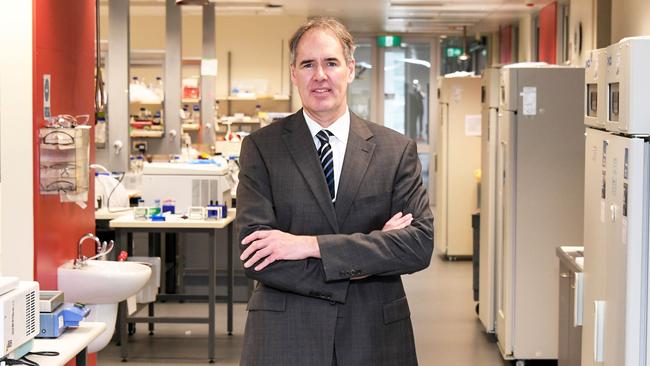Gender gene discovery to change the way coronary heart disease is treated
Men are twice as likely as women to have a heart attack but new research shows the drivers of coronary heart disease differ by sex and may lead to gender-based therapies.
NSW
Don't miss out on the headlines from NSW. Followed categories will be added to My News.
How you are treated for coronary heart disease may be dictated by your gender after a groundbreaking study identified the key genes that contribute to heart attack are different in men and women.
The international study, in collaboration with Australia’s The Victor Chang Cardiac Research Institute, compared hundreds of male and female patients with coronary heart disease — the leading cause of heart attack.
The Institute’s Executive Director, Professor Jason Kovacic, said the breakthrough pinpointed major molecular and genetic differences between men and women at high risk of having a heart attack.
“In the walls of the blood vessels going to the heart, at the cellular level there are fundamental differences between men and women,” Prof Kovacic said.

“Before, we understood there were different risk factors in men and women, for example, men had higher smoking rates than women and were more overweight, cholesterol and blood pressure were different and hormone levels were different.
“(But) what this study shows is above and beyond that, there are fundamental differences in the wall of the blood vessels going to the heart that cause these blockages in men and women which we did not appreciate until this point.”
In men the genes that interact and are the key drivers of the disease are related to the immune system but in women the key driving genes were the smooth muscle and other cells in the walls of the arteries.
“When we compared the male and female patients, we saw a huge difference in these genes in smooth muscle and other cells, which are the most common cells in the wall of the arteries. These are some of the most critical cells in causing heart attack,” Prof Kovacic said.
Women experience differences in coronary heart disease compared to their male counterparts and this discovery could answer why.
“It explains why the blockages appear at different periods of life. Women tend to get blockages about five years later than men and women tend to develop more diffuse blockages, whereas men more often develop acute blockages that lead to heart attack. This discovery explains why that is the case,” he said.

Jill Babicci works as a cardiac nurse but it was not until her mother passed away with heart disease in 2016 that she organised tests.
A scan showed she had a 90 per cent blockage in a major artery and was on the way to a heart attack.
‘”I was in total shock, I had no symptoms, I was very fit and not overweight and had no other risk factors. I had just turned 60 and I don’t know what would have happened if I’d not asked for the tests,” Ms Babicci, from Darlinghurst, said — adding she has since had stents inserted.
“I think it’s really interesting research with the link to women’s arteries,” she said.
Originally published as Gender gene discovery to change the way coronary heart disease is treated




